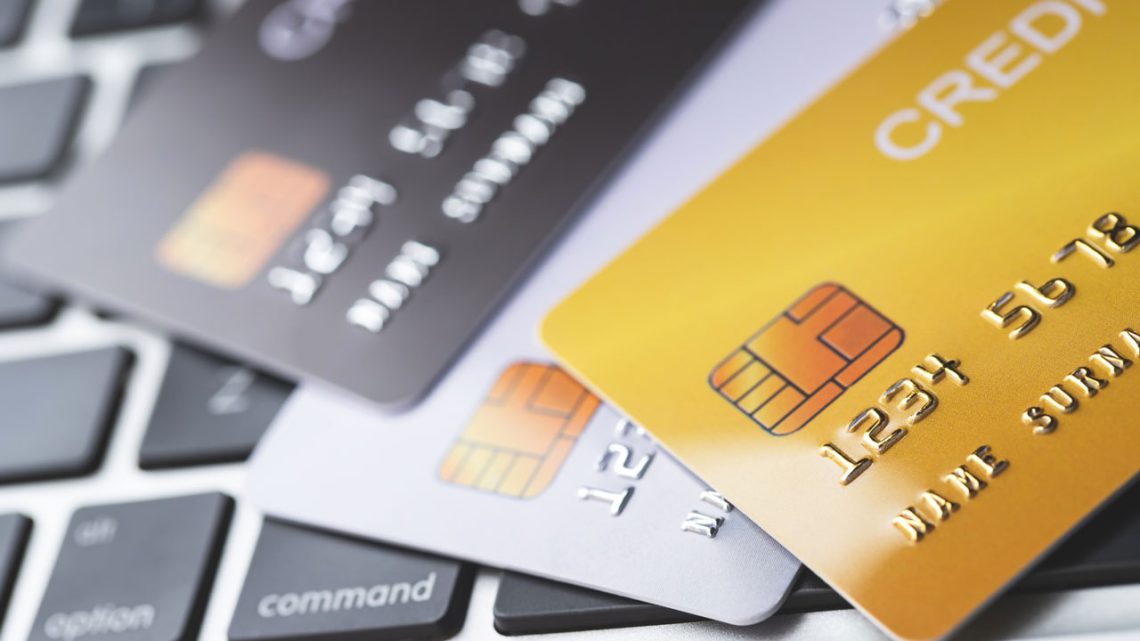
Credit card fraud is one of the most prevalent types of fraud and one of the most difficult to prosecute. In the US, less than 1% of credit card fraud is solved annually. If fraudsters are caught they can be charged with civil or criminal offenses. Those found guilty of a credit card fraud crime face heavy penalties, including jail time.
Criminal cases of credit card fraud can be prosecuted at the state or federal level. Credit card fraud charges vary by state, but penalties always depend on the accused’s criminal history, the extent of harm, and criminal intent.
The extent of harm is crucial in determining the case’s severity and punishment. For example, fraud of $500 can result in a $1000 fine and a year in county jail. Felony convictions to the tune of $10,000 and up can be punishable by a $25,000 fine and up to 15 years in prison.
An experienced credit card fraud attorney can limit credit card fraud penalties through negotiations and plea bargains.
Credit Card Fraud Definition
Credit card fraud crime occurs when a fraudster uses the details of a stolen or lost credit card to purchase goods and services or make other payments to their benefit.
Examples of fraudulent credit card use:
- A restaurant manager steals your credit card number to buy his girlfriend an engagement ring.
- Card cloning at an ATM using a credit card skimmer to capture your card’s details, which are used in a drug deal.
- A data breach at a retailer steals all client/customer information.
It’s usually difficult to prove who the guilty party is and where the fraud started. This is a challenge when it comes to charging someone with a credit card fraud felony.
Different Types of Credit Card Fraud
Credit card fraud crime is an umbrella term covering many illegal actions. It usually involves an aspect of identity theft so fraudsters can be held to account for two crimes if caught. Common types of fraud that fall under the umbrella include:
Counterfeit Credit Cards
Criminals create counterfeit cards by copying the data on a card’s magnetic strip. The data is transferred to a fake credit card that resembles the original.
You should always read your bank statements and use your app to get up-to-date information so you can immediately spot anything suspicious and alert your bank.
Stolen Credit Cards
Credit cards can be stolen directly from a purse or wallet, but it’s not necessary for thieves to physically obtain your card. They can simply steal the details and use them to conduct fraudulent credit card transactions.
Skimming
Skimming devices are attached to handheld card machines and ATMs. Data is skimmed or copied when you swipe or insert your card to pay for goods or services and withdraw money from an ATM.
Criminals who use skimming devices at ATMs also use micro-cameras to capture your PIN as you enter it. Always cover the keypad when you enter your PIN and ensure that there isn’t anyone standing close to you when you use the machine.
Phishing
Phishing occurs when criminals use emails, text messages, website links, or phone calls to trick victims into providing sensitive banking information. Remember financial institutions never ask for passwords or personal information on the phone or in emails.
Always look at the links in emails or texts that require you to go to a website. Financial institutions’ websites always start with https:// to indicate their security. If the link you’re sent doesn’t have the s on the http:// delete the email or message immediately.
Account Takeover
Account takeover fraud occurs when criminals access your online banking and social media accounts. The aim is to get as much personal information as possible to successfully impersonate you and ransack your accounts.
Always log out of your accounts when you’re finished using them.
Petty Theft
According to California’s credit card fraud laws, fraudulent activity can be classified as petty theft, grand theft, or forgery. Petty theft is when the stolen amount is $950 or less. This is a misdemeanor. When the amount is more than $950, the charge is felony grand theft.
The line between petty and grand theft is fuzzy if the crime is a wobbler offense, which can be tried as either a misdemeanor or felony.
If you’re charged with credit card fraud, you should consult a card fraud defense lawyer to determine which type of credit card fraud punishment is applicable to your case.
Credit Card Fraud Penalties an Accused May Face
Depending on extenuating circumstances the penalty for credit card fraud crime can be as low as a $500 fine and/or 30 days probation. Seasoned criminals can expect higher penalties with prison sentences as opposed to probation.
Criminal History and Felony Charges
Criminal history counts against you in a credit card fraud trial. First-time offenders generally get lighter criminal penalties than those who have been in and out of prison.
Prison Time When Convicted
Not all criminal convictions result in prison time; some penalties favor probation. The length of a prison sentence depends on various factors. Typically, the greater the cost the greater the potential consequences.
Damages less than $500 could result in a six-month sentence in county jail. Class 2 misdemeanors can result in jail time of one to 60 days. A class 1 felony can result in three to 12 months in jail.
When credit card fraud involves theft, the prison term could be up to five years. The sentence could be up to 20 years if identity theft is included. If the offense includes other federal crimes, credit card fraud jail time can go up to 30 years.
Maximum Sentence Lengths
The maximum credit card fraud sentence for felony credit card fraud is 30 years in prison. However, some penalties are more widespread. For example, you could get 20 years in prison plus a fine of $250,000 plus forfeiture of personal assets plus restitution to the victim plus the plaintiff’s legal costs.
Ways Fraud Defense Lawyer in California Can Help You Face Legal Accusations
If you’re accused of credit card fraud, your attorney can build a strong defense based on the following:
- Lack of fraudulent intent – The cornerstone of credit card fraud crime is intent. The lack of intent to commit fraud means you can’t be guilty of the crime.
- Lack of evidence – It’s not easy building a watertight case against those accused of credit card fraud. A skilled defense attorney casts doubt on flimsy evidence.
- False accusations – Sometimes people just have it in for you. Whatever the perceived offense, they want to ruin your life with the stigma of criminal charges.
- Mistaken identity – Credit card fraud crime often involves identity theft, so you could be caught up in a case that has nothing to do with you.
- Duress – You can’t be held liable if you were coerced into committing fraud by someone threatening to shoot your dog.
Should You Hire a Fraud Defense Lawyer in California?
If someone accuses you of credit card fraud, the best thing you can do is consult a fraud defense lawyer in California. Fraud lawyers know how to make the law work for you rather than against you.
If you want to avoid a credit card fraud conviction, you need to need an experienced attorney on your side.
Consult with the Best Fraud Defense Lawyer in California at LibertyBell Law Group
We employ teams of attorneys who specialize in white-collar crimes like credit card fraud. Make us your first choice when you need someone to prove your case and avoid a potential credit card fraud penalty.
For advice or to book a free consultation with one of our expert attorneys, contact us at 877-545-3127 at LibertyBell Law Group today!

Gina Tennen
Founder
At A Glance
- Expert legal strategist.
- Experienced in both prosecution and defense.
- Relentless fighter for her clients with results to prove it.
- Received the National Top 100 Trial Lawyers Award
- Featured in Time Magazine’s “Leaders of Criminal Defense“ in the 100 Most Influential People edition.
Executive Managing Attorney Gina Tennen is a renowned leading advocate of personal liberties. Her meticulous trial preparation and exceptional ability to pursue every possible defense has earned her the admiration of clients and respect from prosecutors, judges, and other criminal attorneys all over the nation.
Lawyer Tennen began her career as a Senior Law Clerk for one of the toughest District Attorney’s offices in the country where she gained remarkable experience in juvenile crimes, elder abuse, parole hearings, child abuse, sex and other serious crimes. Her experience at the District Attorney’s Office armed her knowledge and case strategy in exploiting the other side’s weaknesses for the client’s advantage and building a rock solid defense. Criminal attorney Tennen’s experience on both sides and brilliant maneuvering throughout is evidenced in her winning track record. In fact, even before earning her law degree, she was instrumental in getting excellent results on several criminal cases outshining her peers.
A consummate strategist and top criminal attorney, lawyer Tennen works tirelessly on many high profile criminal cases. She is known as a relentless fighter who never gives up on any case. Whether the case is hers or handled by another criminal defense attorney from LibertyBell Law Group, no matter how small the case may seem she asserts that every client deserves the right to the best legal representation.
It is her deep belief and what she has built her entire career and lifelong dedication to that there is always hope for every client and every avenue should be pursued regardless of the time and energy it takes. For criminal attorney, Gina Tennen, devoting the finest criminal defense for clients is a habit and talent that you must apply and do all the time.
You demand the best defense. Take hold of your life and speak to our defense attorneys by calling (530)-309-1156 now.
Founder Gina Tennen and all the sex offender attorneys at LibertyBell Law Group uphold that when the bell rings, it rings for life and liberty for all.
REQUEST A FREE CONSULTATION




